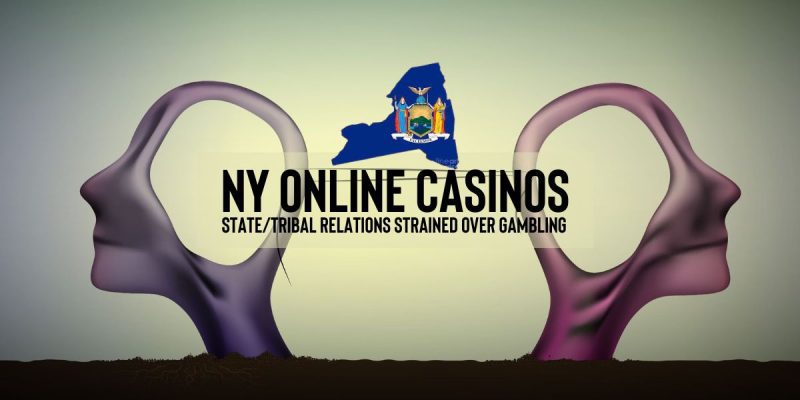When New York expanded gaming to include online sports betting, it completely shifted the gaming dynamic between tribal and commercial operators. But with other forms of gambling on the horizon, like New York online casinos, many speculate tribal/state relationships could deteriorate even further.
New York tribal gaming compacts can get fuzzy
In 2019, New York legalized retail sports betting, opening the door for tribes to begin offering bets so long as they took place on tribal land. From the start, the Oneida Indian Nation, Saint Regis Mohawk Tribe, and Seneca Nation began offering retail betting under the state/tribal compact.
But slowly, commercial properties were also allowed to provide in-person gambling. Speaking with Tribal Business News, Kathryn Rand, co-director of the Institute for the Study of Tribal Gaming Law and Policy, said:
“[The] 2019 law authorized in-person, retail sports bets. Existing state compacts expressly permit tribes to operate any Class 3 game that is subsequently legalized by the state. As a result of that automatic amendment provision, no additional amendments were necessary to authorize tribal sportsbooks.”
According to Rand, it was easy for tribes to begin offering this new form of gambling because it already fell under “Class 3” gaming per the state/tribal compact.
But when New York legalized online sportsbooks, things became murky.
What about new forms of gambling in New York?
When NY online sports betting launched, tribes, essentially, were on the outside looking in. Under the new state gaming law, the server for online bets had to be “physically located” on the premises of one of the state’s commercial casinos. Thus, tribal entities had very few options to offer online betting.
They could create their product from scratch and attempt to receive a commercial license from the state. Or choose to partner with a commercial operator directly in exchange for profit sharing. With so few options, tribes took the profit-sharing route.
The Oneida Indian Nation and Saint Regis Mohawk Tribe partnered with Caesars Entertainment, while Seneca Nation partnered with FanDuel.
For perspective, after one year of operation, online sports betting in New York generated $1.4 billion in revenue. As a result, the state collected over $693 million in taxes.
Legalizing New York online casinos could increase tribe/state tensions
But as lawmakers work to legalize New York online casinos and online poker, it could teleport tribes back to 2021 — on the outside looking in. For some, it could be as easy as flipping a light switch.
Tribes could renegotiate their revenue-sharing agreements with commercial operators to allow online casino games. Operators like FanDuel and Caesars already offer online casino games in other states like New Jersey and Michigan.
However, tribes like the Seneca Nation might not like renegotiating with New York. In 2022, the tribe voiced its frustration after being forced to turn over $566 million in back casino payments only to watch Gov. Kathy Hochul reallocate the money for a new football stadium.
In a radio ad, the tribe said:
“The state of New York just received hundreds of millions of dollars from the Seneca Nation. The additional funding gave Gov. Hochul a great opportunity to help repair our roads, build hospitals, fix our bridges and support our schools. What did she do instead? She gave away hundreds of millions of dollars to build a football stadium for the NFL.”
It’s unknown if relationships between New York tribes and the state government will continue to deteriorate. But as lawmakers continue to expand gambling in Empire State, hopefully, they will let tribal entities receive a piece of the pie as well.








